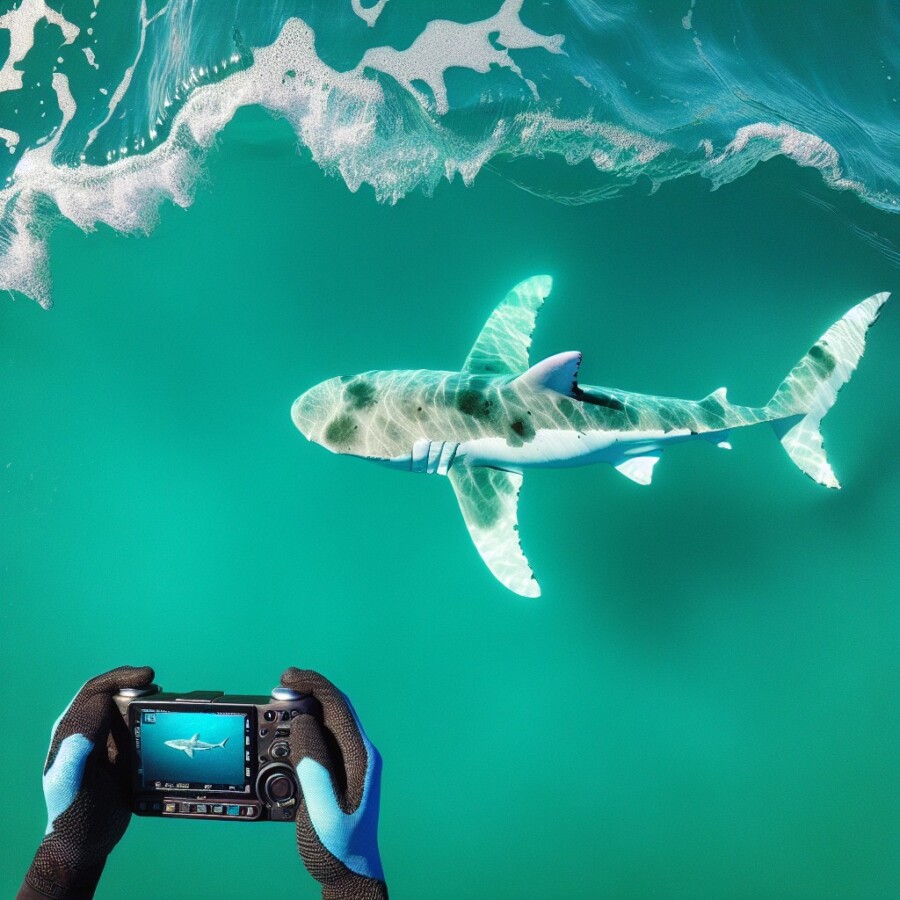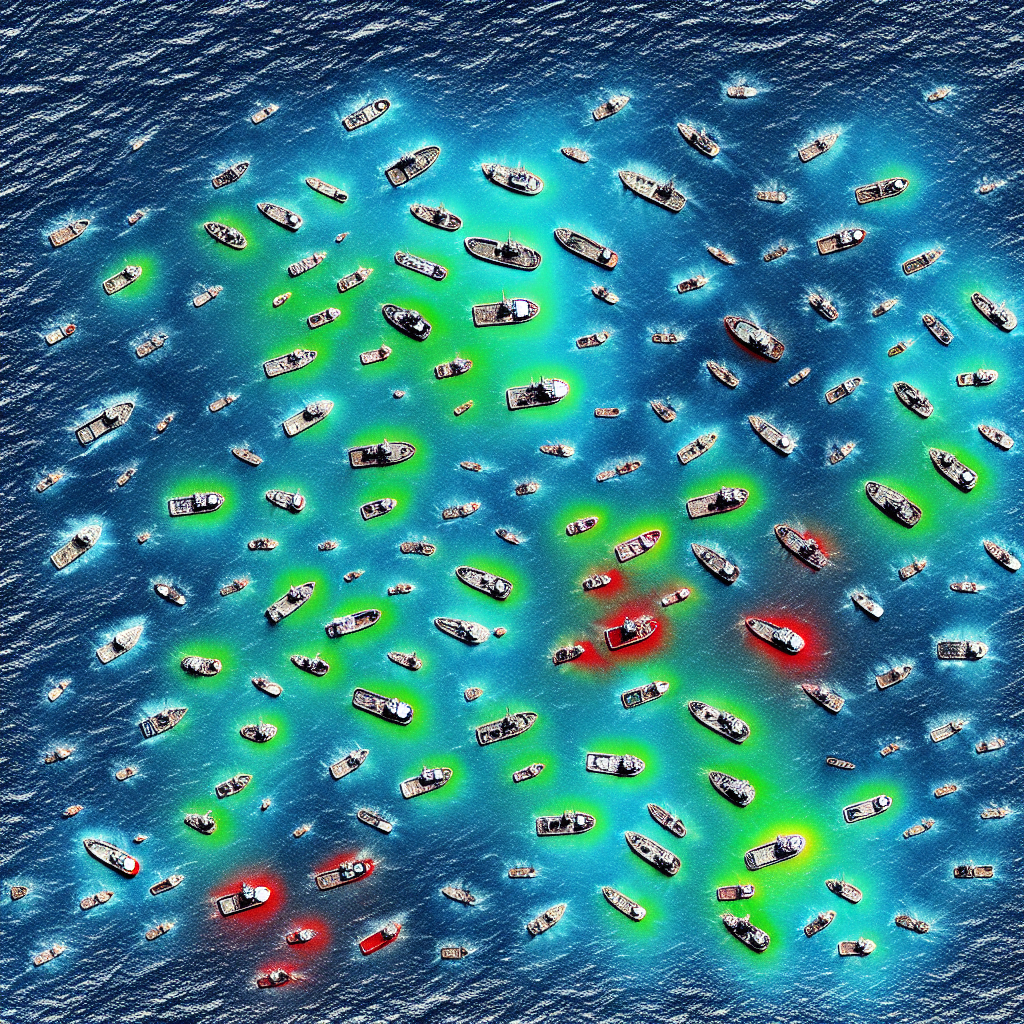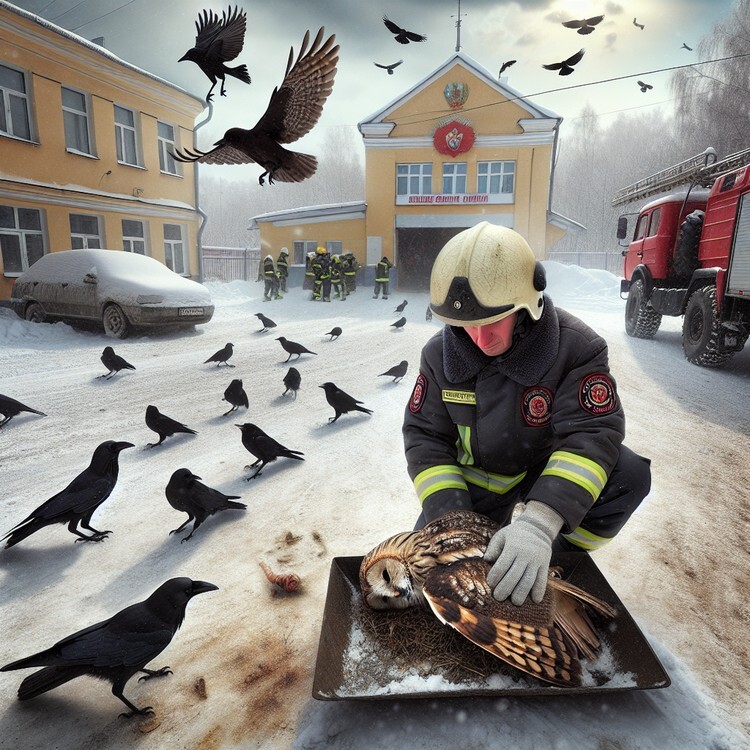Japan’s cabinet has approved the export of new fighter jets that it is developing with the UK and Italy, marking a significant departure from its pacifist policies. The country has eased its arms export rules to allow the sale of these jets to countries with which it has signed defence pacts, as long as there is no ongoing conflict. Japan has expressed concerns about the threats posed by China and North Korea and has pledged to double its military spending by 2027. Each fighter jet sale will require cabinet approval.
In December 2022, Japan joined a collaboration with the UK and Italy to develop a new fighter jet called the Tempest. These jets, expected to be deployed by 2035, will incorporate artificial intelligence and advanced sensors to assist pilots. This partnership with the UK and Italy marks Tokyo’s first defence equipment development collaboration with a country other than the US. The decision to export these fighter jets comes ahead of Prime Minister Fumio Kishida’s upcoming visit to the US in April, where he is expected to emphasize Japan’s alliance with Washington and its willingness to participate in defence partnerships.
Prime Minister Kishida has stated that allowing the export of warplanes to third countries is necessary to maintain Tokyo’s credibility as a partner in future international defence projects. The government spokesperson, Yoshimasa Hayashi, emphasized the importance of ensuring the security of the nation’s defences and stated that the plan to develop fighter jets with essential capabilities must be realized. However, Defence Minister Minoru Kihara clarified that Japan remains committed to its pacifist philosophy and will go through strict decision processes for exports.
Japan’s pacifist stance dates back to its post-World War Two constitution, which renounces war and the use of force to settle international disputes. The country’s military is officially limited to self-defence capabilities, and an arms export ban was imposed. This ban was first eased in 2014 and further relaxed in December 2023 to allow the export of lethal weapons made under foreign licenses. This change paved the way for Japan to send Patriot air defence missiles to the US. It is important to note that Japan’s decision to export fighter jets represents a significant shift in its post-war pacifist ideals.
Original news source: Japan to sell fighter jets in break from pacifism (BBC)
🎧 Listen:
Slow
Normal
Fast
📖 Vocabulary:
| 1 | pacifist | Believing in and advocating for peace rather than using violence or war |
| 2 | collaboration | Working together towards a common goal or project |
| 3 | deployed | Positioned or stationed in a specific place for action |
| 4 | artificial intelligence | The simulation of human intelligence by machines or computer systems |
| 5 | sensors | Devices that detect or measure physical properties and record, indicate, or otherwise respond to them |
| 6 | credibility | The quality of being trusted and believed in |
| 7 | partnership | A cooperative relationship between parties, especially for mutual benefit |
| 8 | alliance | A formal agreement or union between nations for mutual support |
| 9 | capabilities | The skills, knowledge, and abilities needed to do something |
| 10 | constitution | The fundamental principles or established precedents according to which a state or other organization is governed |
| 11 | renounces | Formally declares abandonment or rejection of a belief or practice |
| 12 | lethal | Capable of causing death or serious harm |
| 13 | eased | Made less severe or intense |
| 14 | missiles | Projectiles designed to be propelled through the air |
| 15 | ideals | Principles or standards of behavior; one’s judgment of what is important in life |
Group or Classroom Activities
Warm-up Activities:
– News Summary
Instructions: In pairs, students will take turns summarizing the main points of the article to their partner. They should aim to include key details and important facts in their summary. After each summary, the partner can provide feedback and ask any questions for clarification.
– Opinion Poll
Instructions: Students will work individually to write down their opinion on Japan’s decision to export fighter jets. They should consider the potential benefits and drawbacks of this decision. Once they have written their opinion, they will pair up with another student and share their thoughts. They can discuss their reasons behind their opinion and try to find common ground or differences in their viewpoints.
– Vocabulary Pictionary
Instructions: Divide the class into small groups. Each group will receive a set of vocabulary words related to the article. One person from each group will choose a word and draw a picture on the board to represent it, while the rest of the group guesses the word. The group that guesses correctly gets a point. Continue until all the words have been used or time runs out, and then tally up the points to see which group has the most.
– Future Predictions
Instructions: In pairs, students will take turns making predictions about the impact of Japan’s decision to export fighter jets. They should consider the potential consequences on regional security, international relations, and Japan’s domestic policies. Each student will share their prediction with their partner, who will then provide feedback and share their own prediction. They can discuss the likelihood of these predictions coming true and any factors that may influence the outcomes.
– Headline Creation
Instructions: Individually, students will create a catchy headline for an article about Japan’s decision to export fighter jets. They should aim to capture the main idea and key points in a concise and attention-grabbing way. Once they have created their headline, they will pair up and share their headlines with their partner. They can discuss the effectiveness of each headline and provide feedback on how to improve them.
🤔 Comprehension Questions:
1. What is the significance of Japan’s approval of the export of new fighter jets?
2. Why has Japan eased its arms export rules?
3. What are Japan’s concerns regarding threats from China and North Korea?
4. What is the purpose of the collaboration between Japan, the UK, and Italy to develop the Tempest fighter jet?
5. What is the reason for Japan’s decision to export these fighter jets?
6. How does Japan’s decision to export warplanes impact its pacifist philosophy?
7. When was Japan’s ban on arms exports first eased, and what was the impact of this change?
8. How does Japan’s decision to export fighter jets differ from its post-war pacifist ideals?
Go to answers ⇩
🎧✍️ Listen and Fill in the Gaps:
Japan’s cabinet has approved the export of new fighter jets that it is (1)______ with the UK and Italy, marking a significant departure from its pacifist policies. The country has eased its arms export rules to allow the sale of these jets to countries with which it has signed defence pacts, as long as there is no ongoing conflict. Japan has expressed concerns about the (2)______ posed by China and North (3)______ and has pledged to double its military (4)______ by 2027. Each fighter jet sale will require cabinet approval.
In December 2022, Japan joined a collaboration with the UK and Italy to develop a new fighter jet (5)______ the Tempest. These jets, expected to be (6)______ by 2035, will incorporate artificial intelligence and advanced sensors to assist pilots. This (7)______ with the UK and Italy marks Tokyo’s first (8)______ equipment development collaboration with a country other than the US. The decision to export these fighter jets comes ahead of Prime Minister Fumio Kishida’s upcoming visit to the US in April, where he is expected to emphasize Japan’s alliance with Washington and its willingness to participate in defence partnerships.
Prime Minister Kishida has stated that allowing the export of (9)______ to third countries is necessary to maintain Tokyo’s credibility as a partner in future international defence projects. The government spokesperson, Yoshimasa Hayashi, emphasized the importance of ensuring the security of the nation’s defences and stated that the plan to develop (10)______ jets with essential capabilities must be realized. However, Defence Minister Minoru Kihara clarified that Japan remains committed to its pacifist philosophy and will go through (11)______ decision processes for (12)______.
Japan’s pacifist stance dates back to its post-World War Two constitution, which (13)______ war and the use of force to settle international disputes. The country’s military is officially limited to self-defence capabilities, and an arms export ban was imposed. This ban was first eased in 2014 and further relaxed in (14)______ 2023 to allow the export of lethal weapons made under foreign licenses. This change (15)______ the way for Japan to send Patriot air defence missiles to the US. It is important to note that Japan’s decision to export fighter jets represents a (16)______ shift in its post-war pacifist ideals.
Go to answers ⇩
💬 Discussion Questions:
Students can ask a partner these questions, or discuss them as a group.
1. What is your opinion on Japan’s decision to export fighter jets?
2. How would you feel if your country decided to increase its military spending?
3. Do you think it is important for countries to collaborate on defence projects? Why or why not?
4. What do you think are the main threats that Japan is concerned about when it comes to China and North Korea?
5. How do you think incorporating artificial intelligence and advanced sensors into fighter jets will impact their effectiveness?
6. Do you think it is necessary for Japan to maintain its credibility as a partner in international defence projects? Why or why not?
7. What do you think are the potential risks of exporting warplanes to third countries?
8. How do you think Japan’s decision to export fighter jets will impact its relationship with the US?
9. Do you believe that countries should prioritize self-defense capabilities over offensive capabilities? Why or why not?
10. How do you think Japan’s pacifist stance has shaped its identity on the global stage?
11. What do you think are the potential consequences of Japan’s decision to ease its arms export rules?
12. How do you think the export of fighter jets will impact Japan’s economy?
13. Do you think it is important for countries to have defence pacts with other nations? Why or why not?
14. How do you think the export of fighter jets will affect Japan’s relationship with China and North Korea?
15. What do you think are the potential benefits of Japan’s collaboration with the UK and Italy on developing fighter jets?
Individual Activities
📖💭 Vocabulary Meanings:
Match each word to its meaning.
Words:
1. pacifist
2. collaboration
3. deployed
4. artificial intelligence
5. sensors
6. credibility
7. partnership
8. alliance
9. capabilities
10. constitution
11. renounces
12. lethal
13. eased
14. missiles
15. ideals
Meanings:
(A) Devices that detect or measure physical properties and record, indicate, or otherwise respond to them
(B) Principles or standards of behavior; one’s judgment of what is important in life
(C) The skills, knowledge, and abilities needed to do something
(D) Capable of causing death or serious harm
(E) Projectiles designed to be propelled through the air
(F) The simulation of human intelligence by machines or computer systems
(G) Working together towards a common goal or project
(H) A cooperative relationship between parties, especially for mutual benefit
(I) A formal agreement or union between nations for mutual support
(J) Made less severe or intense
(K) The quality of being trusted and believed in
(L) Positioned or stationed in a specific place for action
(M) The fundamental principles or established precedents according to which a state or other organization is governed
(N) Believing in and advocating for peace rather than using violence or war
(O) Formally declares abandonment or rejection of a belief or practice
Go to answers ⇩
🔡 Multiple Choice Questions:
1. What is the reason behind Japan’s decision to export new fighter jets?
(a) Economic benefits from arms sales
(b) Concerns about threats posed by China and North Korea
(c) Pressure from the US to increase military spending
(d) Desire to assert dominance in the global arms market
2. Who is Japan collaborating with to develop the new fighter jet called the Tempest?
(a) The US and China
(b) Russia and Germany
(c) The UK and Italy
(d) France and South Korea
3. When are the new fighter jets expected to be deployed?
(a) 2035
(b) 2022
(c) 2027
(d) 2040
4. What is the purpose of incorporating artificial intelligence and advanced sensors into the new fighter jets?
(a) To increase the jets’ speed and agility
(b) To reduce the cost of production
(c) To make the jets invisible to radar
(d) To assist pilots
5. What is Prime Minister Kishida’s main reason for allowing the export of warplanes to third countries?
(a) To increase Japan’s military dominance in the Asia-Pacific region
(b) To maintain Tokyo’s credibility as a partner in future international defence projects
(c) To generate revenue from arms sales
(d) To assert Japan’s independence from the US
6. What is Japan’s official stance on its military capabilities?
(a) Aggressive and expansionist
(b) Capable of launching pre-emptive strikes
(c) Limited to self-defence capabilities
(d) Committed to maintaining a large standing army
7. When was the ban on arms exports first eased in Japan?
(a) 2014
(b) 2022
(c) 2023
(d) 2027
8. What does the decision to export fighter jets represent for Japan?
(a) A move towards becoming a global arms exporter
(b) A response to pressure from the US to increase military spending
(c) A way to assert dominance in the Asia-Pacific region
(d) A significant shift in its post-war pacifist ideals
Go to answers ⇩
🕵️ True or False Questions:
1. Japan’s cabinet has rejected the export of new fighter jets that it is developing with the UK and Italy.
2. Japan has no concerns about the threats posed by China and North Korea.
3. Japan has pledged to double its military spending by 2027.
4. Japan has tightened its arms export rules to disallow the sale of these jets to countries with which it has signed defence pacts.
5. The collaboration with the UK and Italy marks Tokyo’s first defence equipment development collaboration with a country other than the US.
6. Each fighter jet sale will require cabinet approval.
7. Prime Minister Kishida believes that allowing the export of warplanes to third countries is necessary to maintain Tokyo’s credibility as a partner in future international defence projects.
8. The export of these jets is a departure from Japan’s pacifist policies.
Go to answers ⇩
📝 Write a Summary:
Write a summary of this news article in two sentences.
Writing Questions:
Answer the following questions. Write as much as you can for each answer.
1. What is the reason behind Japan’s decision to export fighter jets?
2. Who are Japan’s concerns about the threats posed by?
3. What are the key features of the new fighter jets being developed by Japan, the UK, and Italy?
4. How does Japan’s decision to export fighter jets impact its relationship with the US?
5. How has Japan’s pacifist stance evolved over time?
✅ Answers
🤔✅ Comprehension Question Answers:
1. The significance of Japan’s approval of the export of new fighter jets is that it marks a significant departure from its pacifist policies and represents Japan’s willingness to participate in international defence projects.
2. Japan has eased its arms export rules to allow the sale of these jets to countries with which it has signed defence pacts, as long as there is no ongoing conflict. This change is motivated by Japan’s concerns about the threats posed by China and North Korea.
3. Japan is concerned about the threats posed by China and North Korea. It has expressed worries about their military capabilities and the potential risks they pose to Japan’s security.
4. The purpose of the collaboration between Japan, the UK, and Italy to develop the Tempest fighter jet is to create a new fighter jet that incorporates artificial intelligence and advanced sensors to assist pilots. This partnership with the UK and Italy marks Tokyo’s first defence equipment development collaboration with a country other than the US.
5. Japan’s decision to export these fighter jets is driven by the need to maintain Tokyo’s credibility as a partner in future international defence projects. Prime Minister Kishida believes that allowing the export of warplanes to third countries is necessary for this purpose.
6. Japan’s decision to export warplanes represents a significant shift in its post-war pacifist ideals. The country’s pacifist stance, based on its post-World War Two constitution, renounces war and the use of force to settle international disputes. By exporting fighter jets, Japan is engaging in the international arms trade and moving away from its traditional pacifist philosophy.
7. Japan’s ban on arms exports was first eased in 2014. This change allowed Japan to send Patriot air defence missiles to the US. The further relaxation of the ban in December 2023 allowed the export of lethal weapons made under foreign licenses.
8. Japan’s decision to export fighter jets differs from its post-war pacifist ideals because it involves participating in the international arms trade and engaging in defence partnerships with other countries. Japan’s pacifist philosophy, based on its post-World War Two constitution, renounces war and the use of force to settle international disputes. The export of fighter jets represents a departure from this philosophy and a shift towards a more active role in international defence.
Go back to questions ⇧
🎧✍️✅ Listen and Fill in the Gaps Answers:
(1) developing
(2) threats
(3) Korea
(4) spending
(5) called
(6) deployed
(7) partnership
(8) defence
(9) warplanes
(10) fighter
(11) strict
(12) exports
(13) renounces
(14) December
(15) paved
(16) significant
Go back to questions ⇧
📖💭✅ Vocabulary Meanings Answers:
1. pacifist
Answer: (N) Believing in and advocating for peace rather than using violence or war
2. collaboration
Answer: (G) Working together towards a common goal or project
3. deployed
Answer: (L) Positioned or stationed in a specific place for action
4. artificial intelligence
Answer: (F) The simulation of human intelligence by machines or computer systems
5. sensors
Answer: (A) Devices that detect or measure physical properties and record, indicate, or otherwise respond to them
6. credibility
Answer: (K) The quality of being trusted and believed in
7. partnership
Answer: (H) A cooperative relationship between parties, especially for mutual benefit
8. alliance
Answer: (I) A formal agreement or union between nations for mutual support
9. capabilities
Answer: (C) The skills, knowledge, and abilities needed to do something
10. constitution
Answer: (M) The fundamental principles or established precedents according to which a state or other organization is governed
11. renounces
Answer: (O) Formally declares abandonment or rejection of a belief or practice
12. lethal
Answer: (D) Capable of causing death or serious harm
13. eased
Answer: (J) Made less severe or intense
14. missiles
Answer: (E) Projectiles designed to be propelled through the air
15. ideals
Answer: (B) Principles or standards of behavior; one’s judgment of what is important in life
Go back to questions ⇧
🔡✅ Multiple Choice Answers:
1. What is the reason behind Japan’s decision to export new fighter jets?
Answer: (b) Concerns about threats posed by China and North Korea
2. Who is Japan collaborating with to develop the new fighter jet called the Tempest?
Answer: (c) The UK and Italy
3. When are the new fighter jets expected to be deployed?
Answer: (a) 2035
4. What is the purpose of incorporating artificial intelligence and advanced sensors into the new fighter jets?
Answer: (d) To assist pilots
5. What is Prime Minister Kishida’s main reason for allowing the export of warplanes to third countries?
Answer: (b) To maintain Tokyo’s credibility as a partner in future international defence projects
6. What is Japan’s official stance on its military capabilities?
Answer: (c) Limited to self-defence capabilities
7. When was the ban on arms exports first eased in Japan?
Answer: (a) 2014
8. What does the decision to export fighter jets represent for Japan?
Answer: (d) A significant shift in its post-war pacifist ideals
Go back to questions ⇧
🕵️✅ True or False Answers:
1. Japan’s cabinet has rejected the export of new fighter jets that it is developing with the UK and Italy. (Answer: False)
2. Japan has no concerns about the threats posed by China and North Korea. (Answer: False)
3. Japan has pledged to double its military spending by 2027. (Answer: True)
4. Japan has tightened its arms export rules to disallow the sale of these jets to countries with which it has signed defence pacts. (Answer: False)
5. The collaboration with the UK and Italy marks Tokyo’s first defence equipment development collaboration with a country other than the US. (Answer: False)
6. Each fighter jet sale will require cabinet approval. (Answer: True)
7. Prime Minister Kishida believes that allowing the export of warplanes to third countries is necessary to maintain Tokyo’s credibility as a partner in future international defence projects. (Answer: True)
8. The export of these jets is a departure from Japan’s pacifist policies. (Answer: True)
Go back to questions ⇧












